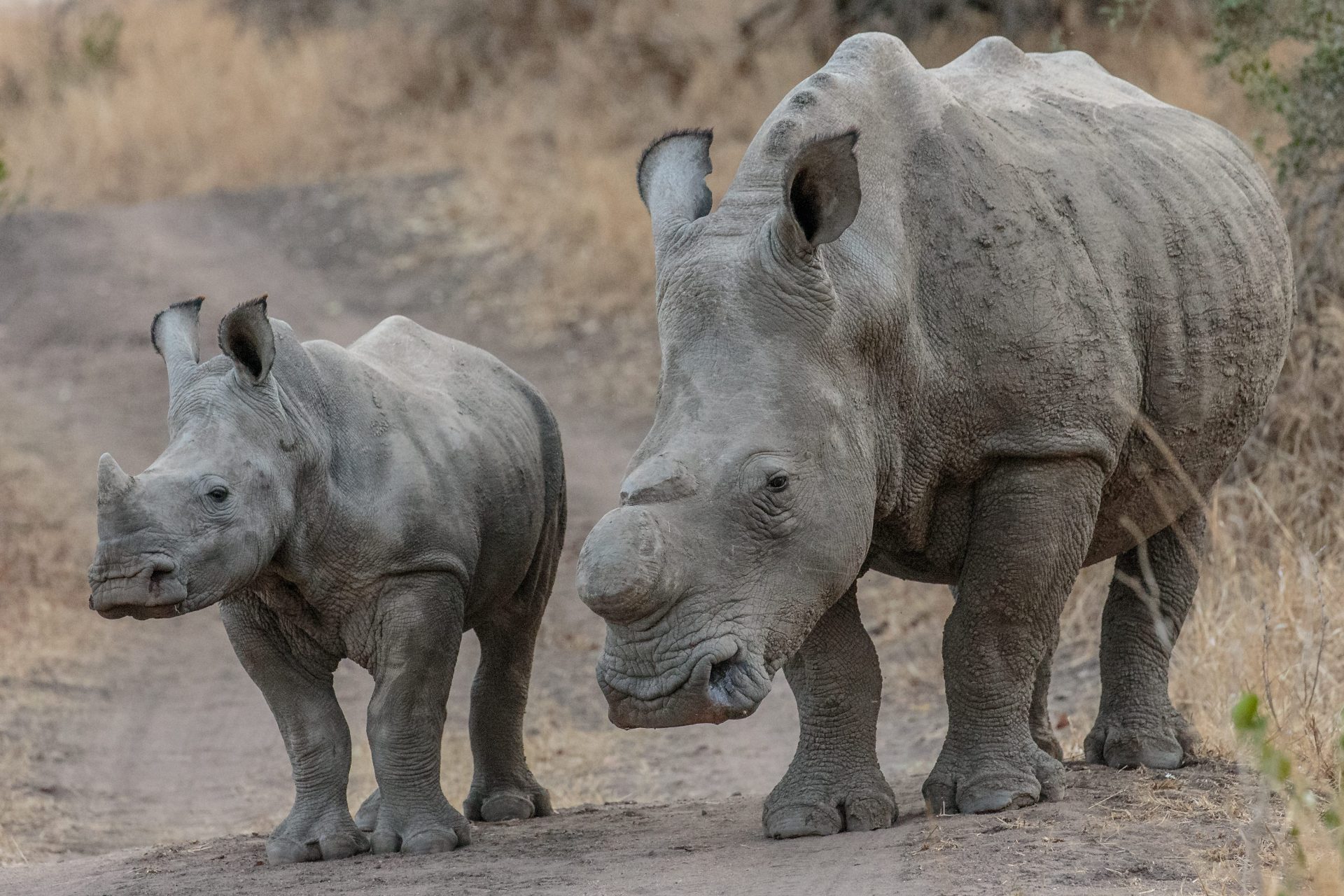‘My take on John Hume’s rhino release plans.’ Professor Keith Somerville of the Durrell Institure of Conservation and Ecology gives his expert comment on the South African Rhino Conservation situation.
As South Africa continues to grapple with the massive and complex problem of conserving its rhinos in the face of high levels of poaching, John Hume’s Platinum Rhino Captive Breeding Operation – the country’s largest private rhino breeding programme – has announced plans to release 100 southern white rhino into the wild annually. The rhino will come from Hume’s 2000 plus population at his Buffalo Dream Ranch in South Africa’s North West province. However, the cost of managing such programmes is huge.
Professor Keith Somerville of Durrell Institute of Conservation and Ecology (DICE) explained:
‘John Hume started breeding rhinos over 30 years ago. He is absolutely committed to continuing his programme but is faced with the huge costs of maintenance of the ranch and the burden of paying for security in the form of rangers, electronic surveillance and other measures to prevent poaching of the rhino for their horn. In 2016, he told me that it was costing R3m (£154,000) to provide watertight security (it is worth noting he hasn’t lost a single rhino to poachers in over five years); and costs will have risen with the increase in rhino and with a post-COVID increase in poaching, particularly of privately-owned rhino as security has been stepped up in the major protected rhino location, Kruger National Park.
‘However, those private owners who do not turn their properties into well-stocked wildlife reserves with tourists paying to see the rhino, have few ways to fund conservation and protection.
‘As a result of these increasing security costs and their ambitious plan to release 100 white rhinos into the wild, John Hume’s organisation are now looking for partners with expertise in rhino relocations and truly wild locations into which to release the rhino. These potential partners include South Africa’s national parks department, SANParks, or other state or private reserve owners, such as Madikwe national park (jointly owned by the North West province, local communities and the private safari sector) and Ezemvelo KZN, which runs reserves in KwaZulu-Natal (KZN). Sadly, in KZN it has just been announced that 123 rhinos have been killed in the first six months of this year – a huge leap on the 12 month total of 102 last year.
‘John Hume has not received a response from any of them to date and it is feared that without their financial and operational support it may become increasingly difficult to release so many rhinos into the wild annually. Let’s hope that, given the rising threat from poachers, a solution can be found soon.’

